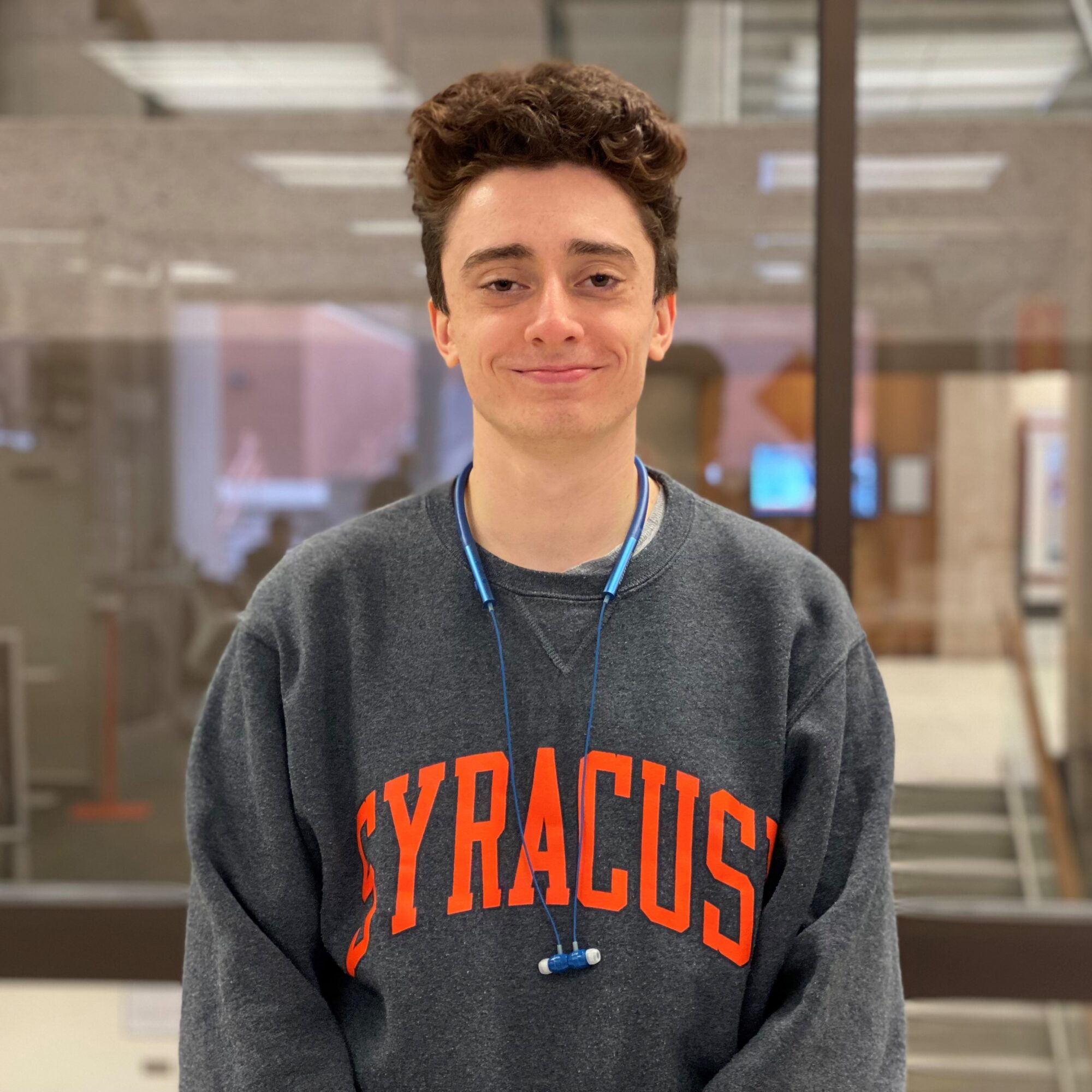
As he lies in bed trying to sleep, a thousand thoughts run through Frank’s mind: What would happen if we don’t fix the space debris issue? How can we fix it? A satellite? What would it do? How would it work?
Frank Marin, an aerospace engineering major in the H. John Riley Dual Engineering/MBA Degree Program, is passionate about making a difference in the future of space technology.
In high school, Frank began researching the Kessler Syndrome, a phenomenon where the amount of space debris orbiting around Earth reaches a point where collisions continue to exponentially create more and more space debris. This threat of more space debris could destroy existing satellites, which could interfere with international space station operations and impact our own technology (such as Wi-Fi) on Earth.
“We wouldn’t be on a Zoom call like we are now if space debris takes out our satellites,” Frank said.
While conducting his research under the guidance of his high school science teacher, Frank gained the confidence to actually apply his knowledge to solving the problem.
“I don’t know what my science teacher saw in me, but she pushed me enough to where I could do something truly amazing,” Frank noted. He added that he wouldn’t be where he is today had it not been for the figures in his life who encouraged him to make his ideas a reality.
After understanding the magnitude of the problem, Frank designed and patented his idea for a new satellite: one whose purpose is the removal of space debris using an original design that combines electromagnets, robotic arms, and a strong adhesive that can latch onto debris tumbling through space. By removing even just 5-10 debris per year, this satellite could mitigate the Kessler Syndrome.
To put a face to the company, Frank, and his co-founder, Elliott Holdosh, began MarHold. Although the idea for the company had been alive and brewing in their minds long before they had made it official, finally putting a name to the idea helped bring it to life.
Throughout the startup process, Frank found it valuable to be working with a co-founder that had the same passion he did.
“Having someone by your side that is willing to risk a lot — just as much as you — for something that isn’t even tangible yet is so unique.”
He also explained that having a co-founder is important in that it both provides you with someone who can build you up while at the same time someone who can play devil’s advocate to potentially bad ideas. Frank admitted that he doesn’t know everything, so team members who fill in gaps in his knowledge are necessary to make the vision a reality.
“When we propose an idea, we talk about it until we either crush it to a pulp or put it on a shelf to come back to,” Frank said.
Because Frank views criticism as an opportunity to grow, he takes feedback he receives to heart, especially when it comes to slowing down on his ideas and taking a process one step at a time instead of three. He reminds other aspiring entrepreneurs to also be open to criticism and to be realistic in their pursuits.
“Keep your head in the clouds but feet on the ground,” he said.
Despite emphasizing the value in staying grounded, Frank does believe in chasing the impossible.
“All we have is the name, the idea, and the dream, but that’s all you need to start.” After all, that’s how all of the world’s greatest inventions began.
Now, Frank and his team are seeking funding for the research and development of the satellite design.
Frank hopes that over time, the company will serve as a catalyst for innovations in other industries too. He believes that dabbling in different fields of science is good because it develops a more comprehensive view of the world and how it works. Frank aspires to capture that bigger picture with MarHold.
“Whatever we may do, it’s going to make an impact,” he said, smiling. “But we can’t do this just the two of us.”
Those interested in learning more about Frank, joining his team, or investing in MarHold’s research and development can find him on LinkedIn or email him at fdmarin@syr.edu.
Story by Blackstone LaunchPad Global Fellow Sasha Temerte ’23; photo by the LaunchPad